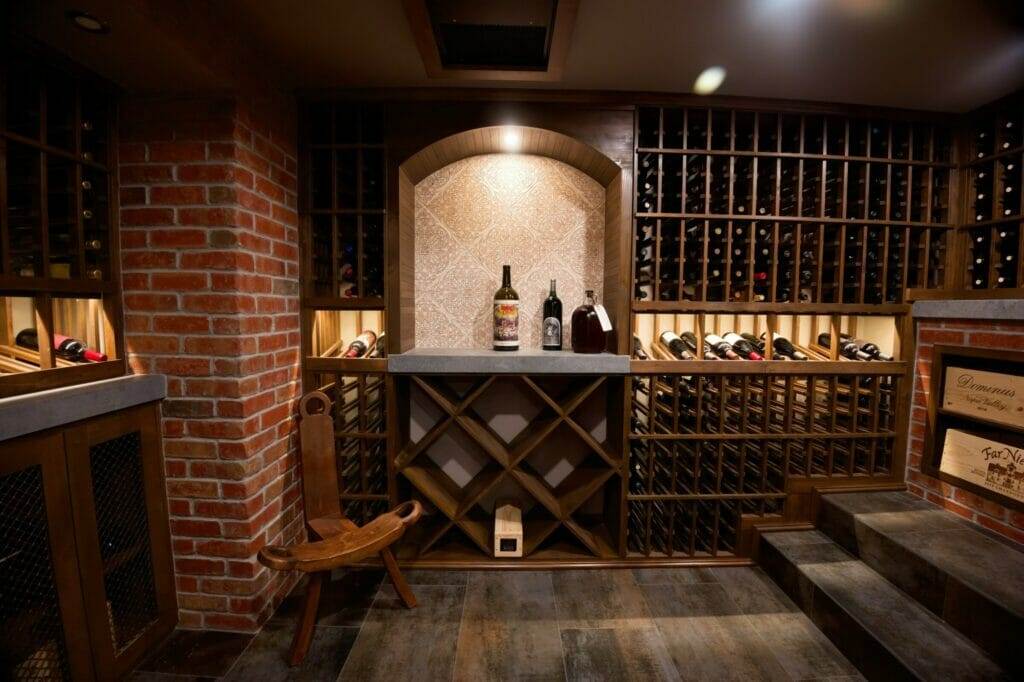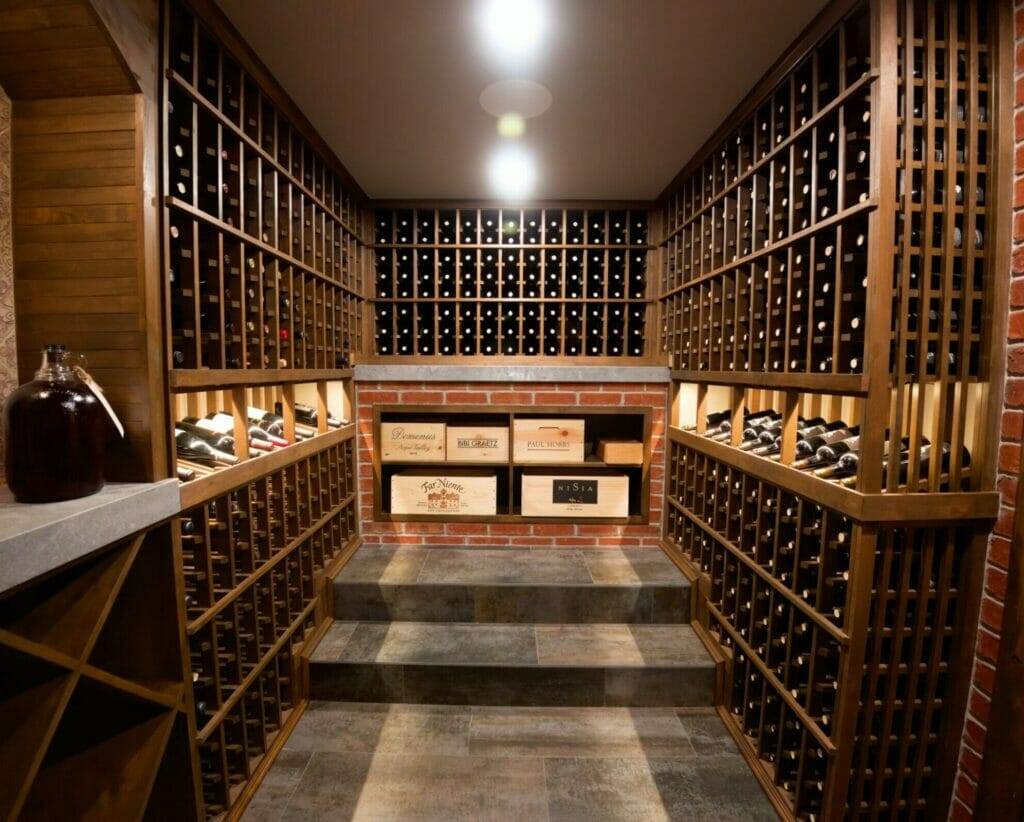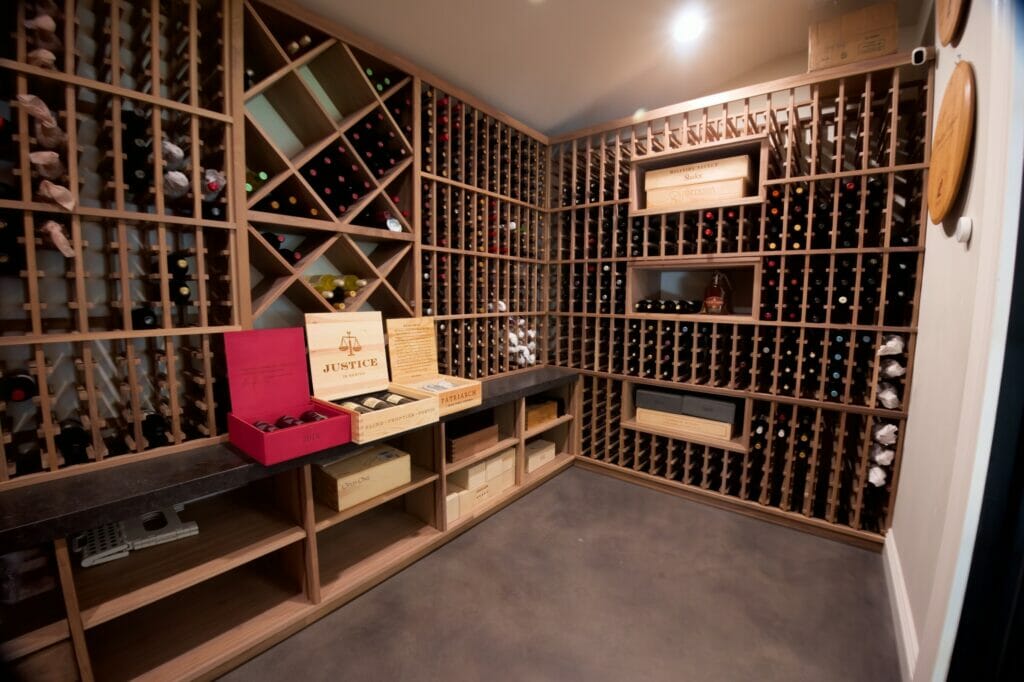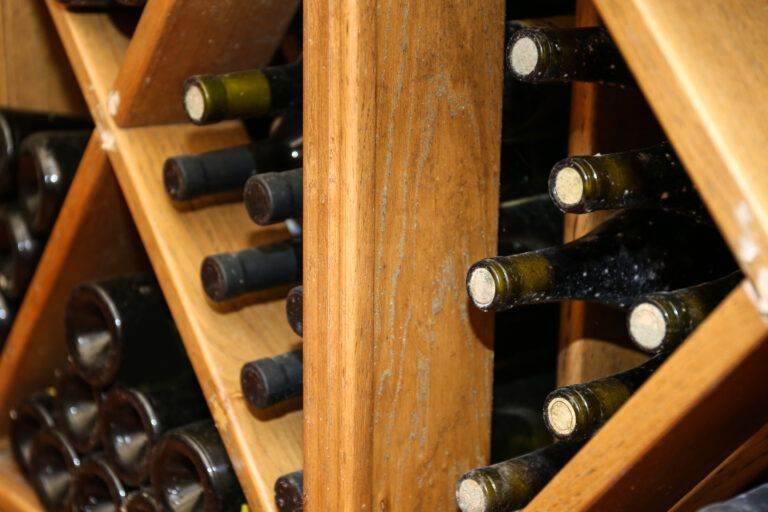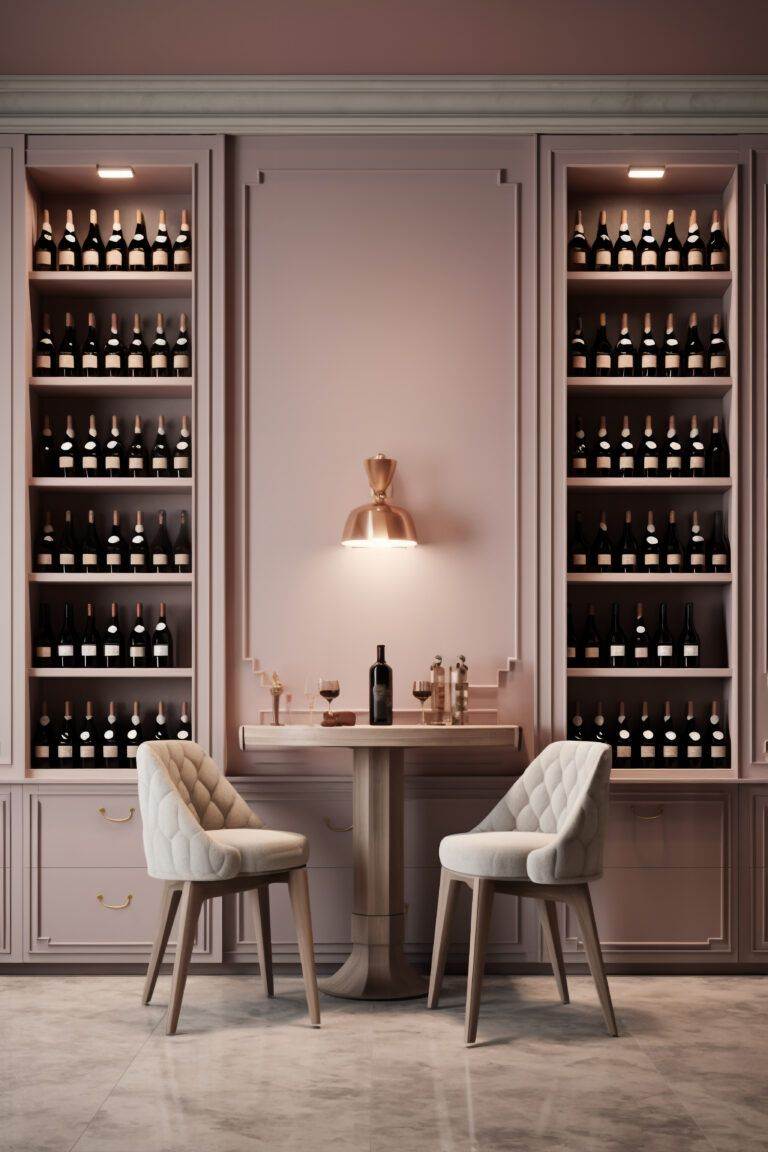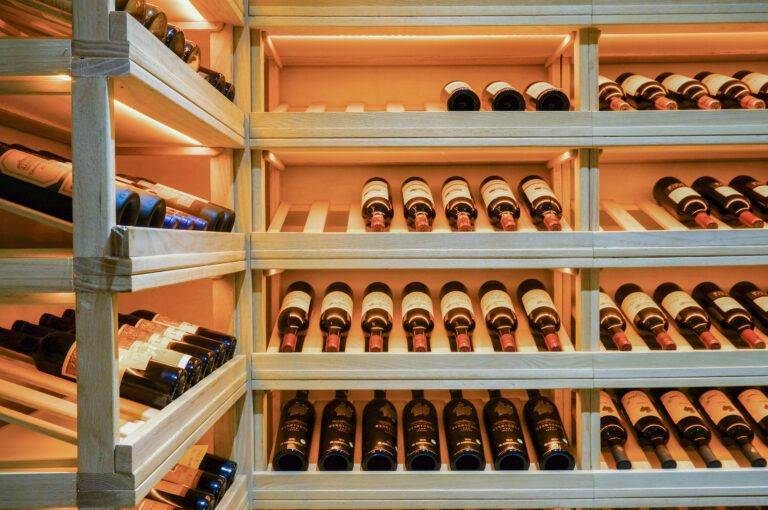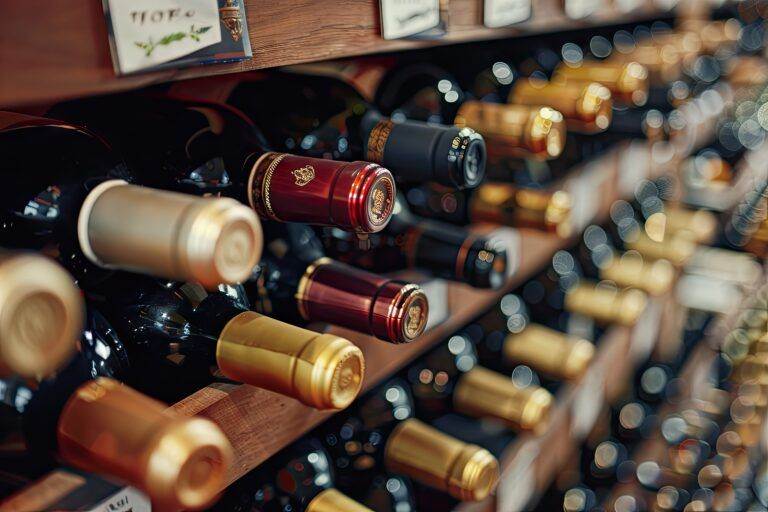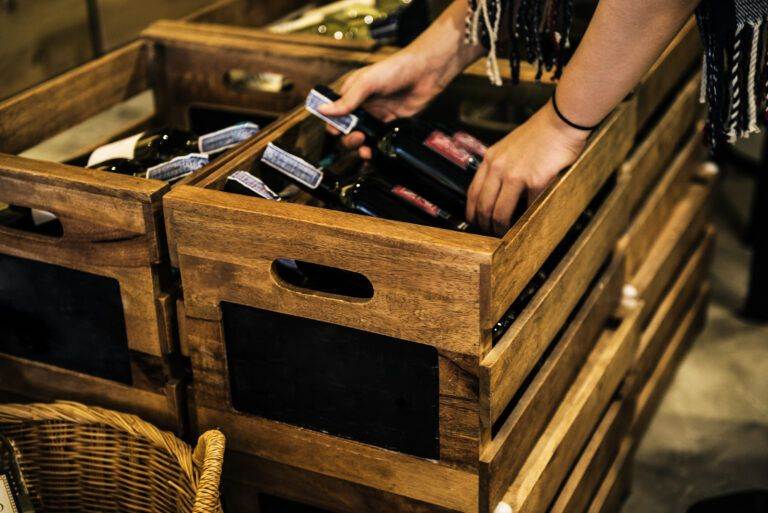Raise a Glass to the Best Flooring Options for Your Home Wine Cellar
When it comes to designing a wine cellar, one of the most important decisions you’ll have to make is choosing the right flooring. The flooring you select can have a significant impact on the overall look, feel, and functionality of your wine cellar. It’s crucial to choose a flooring option that not only complements the aesthetic of your space but also meets the unique requirements of a wine cellar environment.
There are several different flooring options available for wine cellars, each with its own set of advantages and considerations. From cork and stone to wood and tile, the choices can be overwhelming. In this article, we will explore the factors to consider when choosing wine cellar flooring, the benefits of selecting the right flooring, and the top five flooring options for wine cellars.
Factors to Consider when Choosing Wine Cellar Flooring
Before diving into the specific flooring options, it’s essential to understand the factors you should consider when making your decision. These factors will help guide you in selecting a flooring option that not only looks great but also performs well in a wine cellar environment.
Temperature and humidity control are critical considerations for wine cellars. Wine requires specific temperature and humidity levels to age properly. The flooring you choose should be able to withstand these conditions without warping or deteriorating. Additionally, it’s important to select a flooring material that can help regulate temperature and humidity levels in your cellar.
Durability and resistance to moisture are also crucial factors to consider. Wine cellars can be prone to moisture due to their cool temperatures and high humidity levels. The flooring you choose should be able to withstand these conditions without becoming damaged or deteriorating over time.
Aesthetic appeal and style are subjective factors that will vary depending on personal preference and the overall design of your wine cellar. Consider the style and theme you want to achieve in your space and choose a flooring option that complements it.
Maintenance and upkeep requirements should also be taken into account. Some flooring materials require more maintenance than others, so it’s important to choose a flooring option that aligns with your desired level of maintenance.
Budget considerations are also important when selecting wine cellar flooring. Different flooring materials come with different price points, so it’s essential to establish a budget and find a flooring option that fits within it.
Benefits of Choosing the Right Wine Cellar Flooring
Choosing the right flooring for your wine cellar can offer several benefits beyond just aesthetics. Here are some of the advantages of selecting the right flooring:
1. Protection of wine collection: The right flooring can help protect your valuable wine collection by providing a stable and controlled environment. Proper temperature and humidity control can prevent wine from spoiling or aging prematurely.
2. Enhanced aesthetic appeal: The flooring you choose can significantly impact the overall look and feel of your wine cellar. Whether you want a rustic, elegant, or modern aesthetic, the right flooring can help you achieve your desired style.
3. Increased property value: A well-designed and properly constructed wine cellar can add value to your property. Choosing the right flooring can enhance the overall appeal and functionality of your space, making it more attractive to potential buyers.
4. Improved functionality and ease of use: The right flooring can make your wine cellar more functional and user-friendly. For example, slip-resistant flooring can provide added safety when handling bottles or moving around in the cellar.
The Top 5 Flooring Options for Wine Cellars
Now that we’ve discussed the factors to consider and the benefits of choosing the right wine cellar flooring let’s explore the top five flooring options for wine cellars:
1. Cork Flooring: Cork is an excellent choice for wine cellars due to its natural insulation properties and resistance to moisture. It helps regulate temperature and humidity levels, making it ideal for maintaining optimal conditions for wine storage. Cork also has a unique appearance that adds warmth and character to any space. It is easy to maintain and can be sealed to provide additional protection against moisture.
2. Stone Flooring: Stone flooring, such as limestone or travertine, is a durable and elegant option for wine cellars. It is resistant to moisture and can withstand the cool temperatures and high humidity levels of a wine cellar environment. Stone flooring provides a timeless and sophisticated look that can enhance the overall aesthetic of your space. However, it can be more expensive than other options and may require professional installation.
3. Wood Flooring: Wood flooring, such as oak or mahogany, offers a classic and timeless look for wine cellars. It adds warmth and richness to the space while providing excellent insulation properties. Wood flooring is versatile and can be customized to fit any design style. However, it requires regular maintenance, including sealing and refinishing, to protect against moisture damage.
4. Tile Flooring: Tile flooring is a versatile and easy-to-maintain option for wine cellars. It comes in a wide range of styles, colors, and patterns, allowing you to create a unique look for your space. Tile is resistant to moisture and can withstand the temperature fluctuations of a wine cellar environment. It is also easy to clean and maintain, making it a practical choice for busy wine enthusiasts.
5. Concrete Flooring: Concrete flooring offers a modern and industrial aesthetic for wine cellars. It is highly durable and resistant to moisture, making it an excellent choice for long-term use. Concrete can be stained or polished to create a variety of finishes, from sleek and polished to rustic and textured. However, concrete can be cold underfoot, so it may require additional insulation or heating elements.
Cork Flooring: A Sustainable and Stylish Choice
Cork flooring is an increasingly popular choice for wine cellars due to its sustainability, unique appearance, and low maintenance requirements.
One of the main advantages of cork flooring is its sustainability and eco-friendliness. Cork is harvested from the bark of cork oak trees, which can be harvested without harming the tree. This makes cork a renewable and sustainable resource. Additionally, cork flooring is often made from recycled cork, further reducing its environmental impact.
In terms of appearance, cork flooring offers a stylish and unique look that can add warmth and character to any wine cellar. It comes in a variety of colors and patterns, allowing you to customize the look of your space. Cork also has a natural cushioning effect, making it comfortable to walk on and reducing noise levels in the cellar.
Maintenance and upkeep requirements for cork flooring are relatively low. It can be easily cleaned with a damp mop or vacuumed to remove dust and debris. Additionally, cork is naturally resistant to mold, mildew, and pests, making it an excellent choice for wine cellars where moisture control is essential.
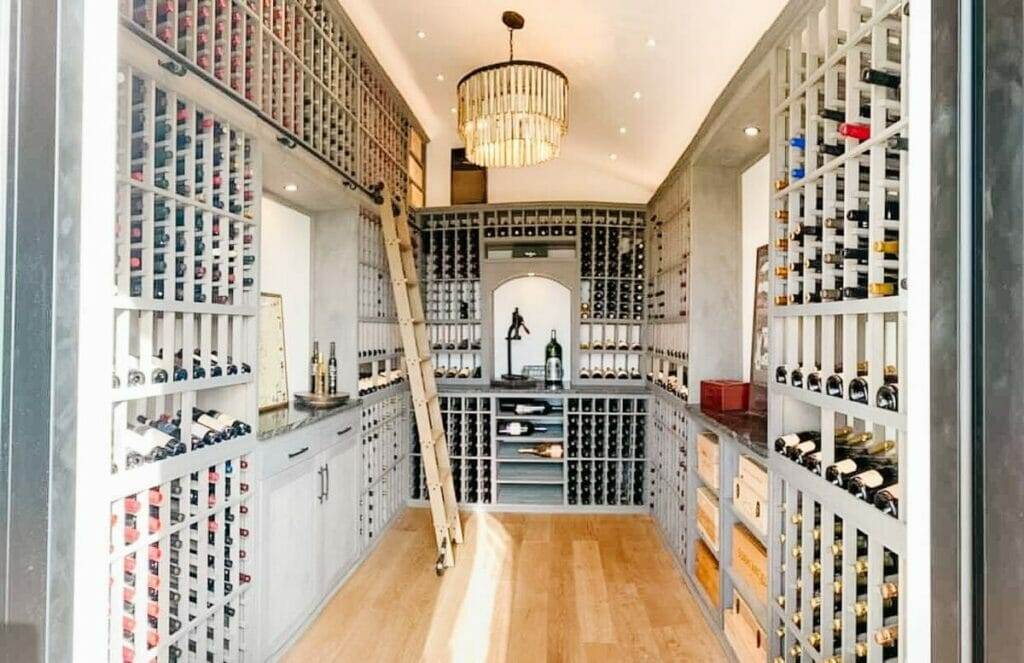
Stone Flooring: A Durable and Elegant Option
Stone flooring is a durable and elegant option for wine cellars that offers timeless beauty and exceptional performance.
One of the main advantages of stone flooring is its durability and resistance to moisture. Stone, such as limestone or travertine, can withstand the cool temperatures and high humidity levels of a wine cellar environment without warping or deteriorating. This makes it an excellent choice for long-term use.
In terms of appearance, stone flooring provides a sophisticated and elegant look that can enhance the overall aesthetic of your wine cellar. It comes in a variety of colors and finishes, allowing you to create a unique design that complements your space. Stone also has a natural cooling effect, which can help regulate temperature levels in your cellar.
Maintenance and upkeep requirements for stone flooring are relatively low. Regular sweeping or vacuuming is usually sufficient to keep the floor clean. Additionally, stone can be sealed to provide added protection against moisture and staining.
Wood Flooring: A Classic and Timeless Look
Wood flooring offers a classic and timeless look for wine cellars, adding warmth and richness to the space.
One of the main advantages of wood flooring is its classic and timeless appearance. Whether you choose oak, mahogany, or another type of wood, it can create a warm and inviting atmosphere in your wine cellar. Wood flooring also offers versatility in terms of design, as it can be customized to fit any style or theme.
In terms of performance, wood flooring provides excellent insulation properties, helping to regulate temperature and humidity levels in your cellar. It is also relatively easy to install and can be sanded and refinished if necessary.
Maintenance and upkeep requirements for wood flooring are higher compared to other options. Wood is susceptible to moisture damage, so it requires regular sealing and refinishing to protect against warping or rotting. Additionally, spills should be cleaned up immediately to prevent staining.
Tile Flooring: A Versatile and Easy-to-Maintain Choice
Tile flooring is a versatile and easy-to-maintain option for wine cellars that offers a wide range of design possibilities.
One of the main advantages of tile flooring is its versatility and customization options. Tiles come in a variety of styles, colors, and patterns, allowing you to create a unique look for your wine cellar. Whether you prefer a sleek and modern design or a rustic and textured look, there is a tile option to suit your taste.
In terms of maintenance, tile flooring is relatively easy to clean and maintain. Regular sweeping or vacuuming is usually sufficient to keep the floor free from dust and debris. Additionally, tiles are resistant to moisture and staining, making them a practical choice for wine cellars.
Durability is another advantage of tile flooring. Tiles are resistant to moisture, temperature fluctuations, and wear and tear, making them suitable for long-term use in wine cellars. However, it’s important to choose tiles that are specifically designed for use in high-moisture areas to ensure their performance.
Concrete Flooring: A Modern and Industrial Aesthetic
Concrete flooring offers a modern and industrial aesthetic for wine cellars, adding a unique touch to the space.
One of the main advantages of concrete flooring is its modern and industrial aesthetic. It provides a sleek and minimalist look that can complement a contemporary design style. Concrete can be stained or polished to create a variety of finishes, from smooth and polished to textured and rustic.
In terms of performance, concrete flooring is highly durable and resistant to moisture. It can withstand the cool temperatures and high humidity levels of a wine cellar environment without warping or deteriorating. Concrete also has excellent thermal mass properties, which can help regulate temperature levels in your cellar.
Maintenance and upkeep requirements for concrete flooring are relatively low. Regular sweeping or mopping is usually sufficient to keep the floor clean. Additionally, concrete can be sealed to provide added protection against moisture and staining.
Carpet Flooring: A Cozy and Insulating Selection
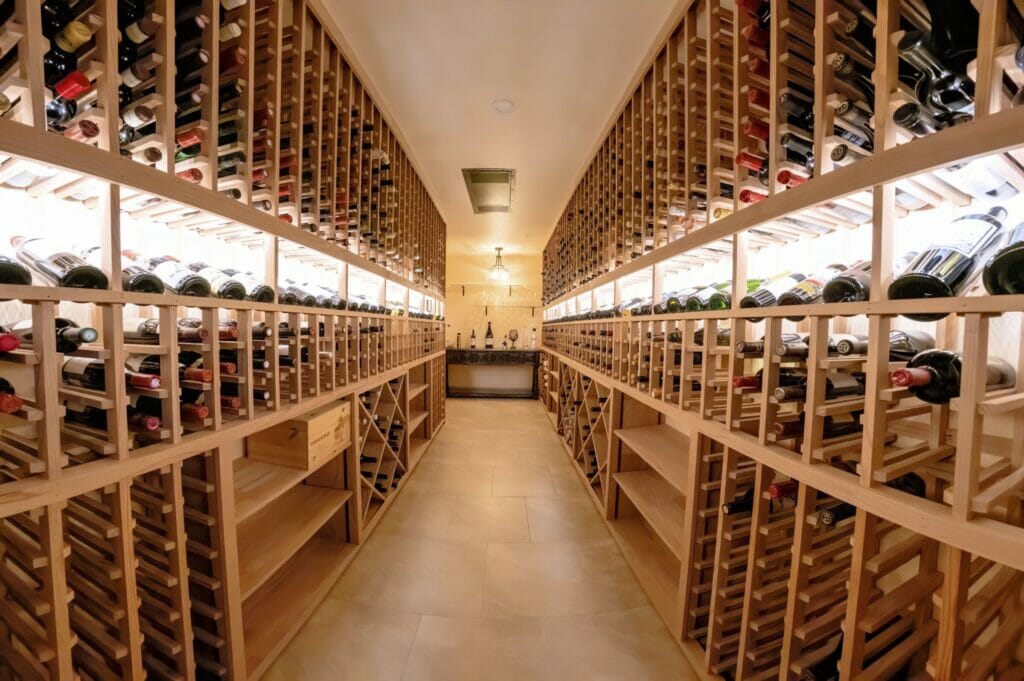
Carpet flooring offers a cozy and comfortable appearance for wine cellars, adding warmth and insulation to the space.
One of the main advantages of carpet flooring is its cozy and comfortable appearance. It provides a soft and plush surface that is comfortable to walk on and adds warmth to the space. Carpet also has excellent insulation properties, helping to regulate temperature levels in your wine cellar.
In terms of maintenance, carpet flooring requires regular vacuuming to remove dust and debris. Spills should be cleaned up immediately to prevent staining. Additionally, it’s important to choose a carpet with moisture-resistant properties to prevent mold or mildew growth in your cellar.
Durability is another consideration when choosing carpet flooring for wine cellars. It’s important to select a carpet that is specifically designed for high-traffic areas and can withstand the demands of a wine cellar environment.
Selecting the Perfect Flooring for Your Wine Cellar
Choosing the right flooring for your wine cellar is a crucial decision that can significantly impact the overall look, feel, and functionality of your space. By considering factors such as temperature control, durability, aesthetic appeal, maintenance requirements, and budget, you can make an informed decision that meets your specific needs and preferences.
Whether you choose cork, stone, wood, tile, concrete, or carpet flooring, each option offers its own set of advantages and considerations. It’s important to weigh these factors against your personal preferences and the requirements of your wine cellar environment to select the perfect flooring option.
Remember, the right flooring can not only protect your wine collection but also enhance the aesthetic appeal, increase property value, and improve the functionality and ease of use of your wine cellar. So take your time, do your research, and choose the flooring that best suits your needs. Cheers to creating the perfect wine cellar!


